As the pandemic began, staff at the Washington, D.C. VA Medical Center converted many medical appointments to telehealth to enforce the CDC’s social distancing and safety guidelines. This was not an option for most hematology and oncology patients and the team (pictured above) who takes care of them.
Dr. Joao Ascensao is chief of Hematology-Oncology. Ascensao said many of his team’s patients are vulnerable and at higher risk of poor outcomes from COVID-19. Still, they must physically come to the medical center to continue their treatments or undergo diagnostic tests.
“We see patients with blood diseases and cancer,”Ascensao said. “Many must come here for tests, such as blood smears, biopsies, and radiographic exams, as well as treatments like chemotherapy. At the onset of the pandemic when many clinics in the medical center shut down, the Hematology-Oncology Clinic did not.”
Nurses clean treatment rooms in between patients
Ascensao says the team’s challenge was to employ extra safety measures to keep Veterans and staff members safe while providing life-saving treatments and important tests to Veterans. Schedulers spaced out Veterans’ appointments and nurses cleaned the treatment rooms in between patients.
They curtailed the cancer support groups and canceled their big annual outreach event, Cancer Survivor’s Day.
The team converted Veterans who were already on a more routine follow-up schedule to telehealth. For those who needed an in-person appointment, the team established social distancing guidelines and ensured protections such as mask use and hand washing.
Commitment to patients’ safe environment
One major issue was to ensure effective communication with patients. The last thing the team wanted was for patients to forgo their treatment because they felt unsafe. “We spoke to them about the potential risks of traveling to the hospital, the importance of continuing treatment and our commitment to provide them a safe environment,” Ascensao said.
As the pandemic continues, Dr. Ascensao says his team and the Veterans they serve continually inspire him. “Our patients have always been a source of inspiration. I believe everyone on our team is committed to ensuring safe and timely care for Veterans.”
He says his team has always been quite cohesive, works well together and looks out for each other. “At times, we wondered if we would ever get over this pandemic,” he continued. “We dwelled on how it affected us personally. But in the end, we’ve all pulled together as a team to care for Veterans.”
The D.C. medical center is staying on its journey to become a high reliability organization led by teams like Hematology-Oncology that support a culture of safety by putting Veterans first.
Gloria L. Hairston is the director of the Office of Public Affairs & Community Relations, Washington D.C. VA Medical Center.
Topics in this story
More Stories
Army Veteran Denis Velez donated a painting of his VA hospital as a way of giving back for his treatment there.
Ron Anderson's story of being caregiver for his father in his final years is a journey of love and duty.
Ignoring challenging emotions can negatively impact our health. Breathe through worry, anger and sadness in 5 minutes with this week's #LiveWholeHealth practice.

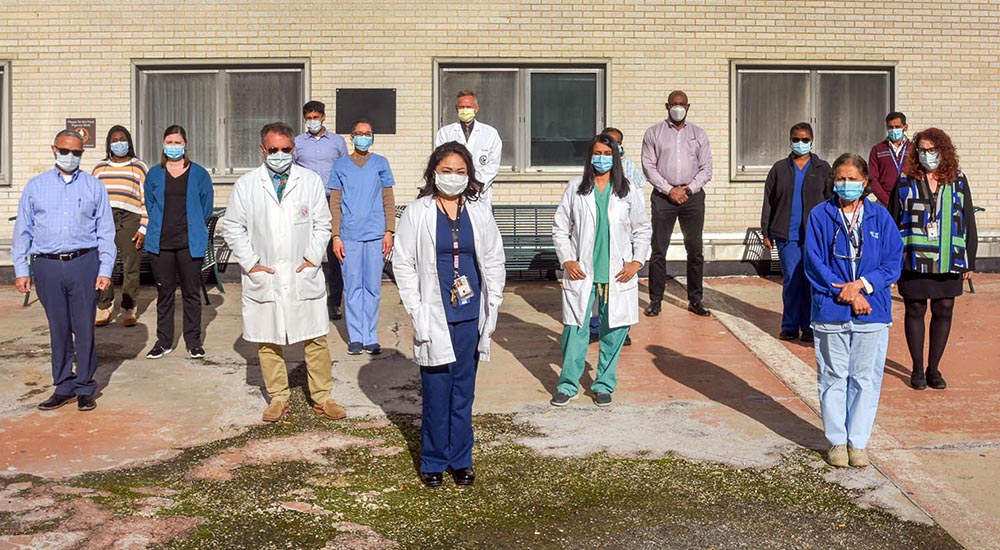
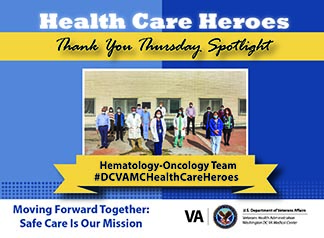
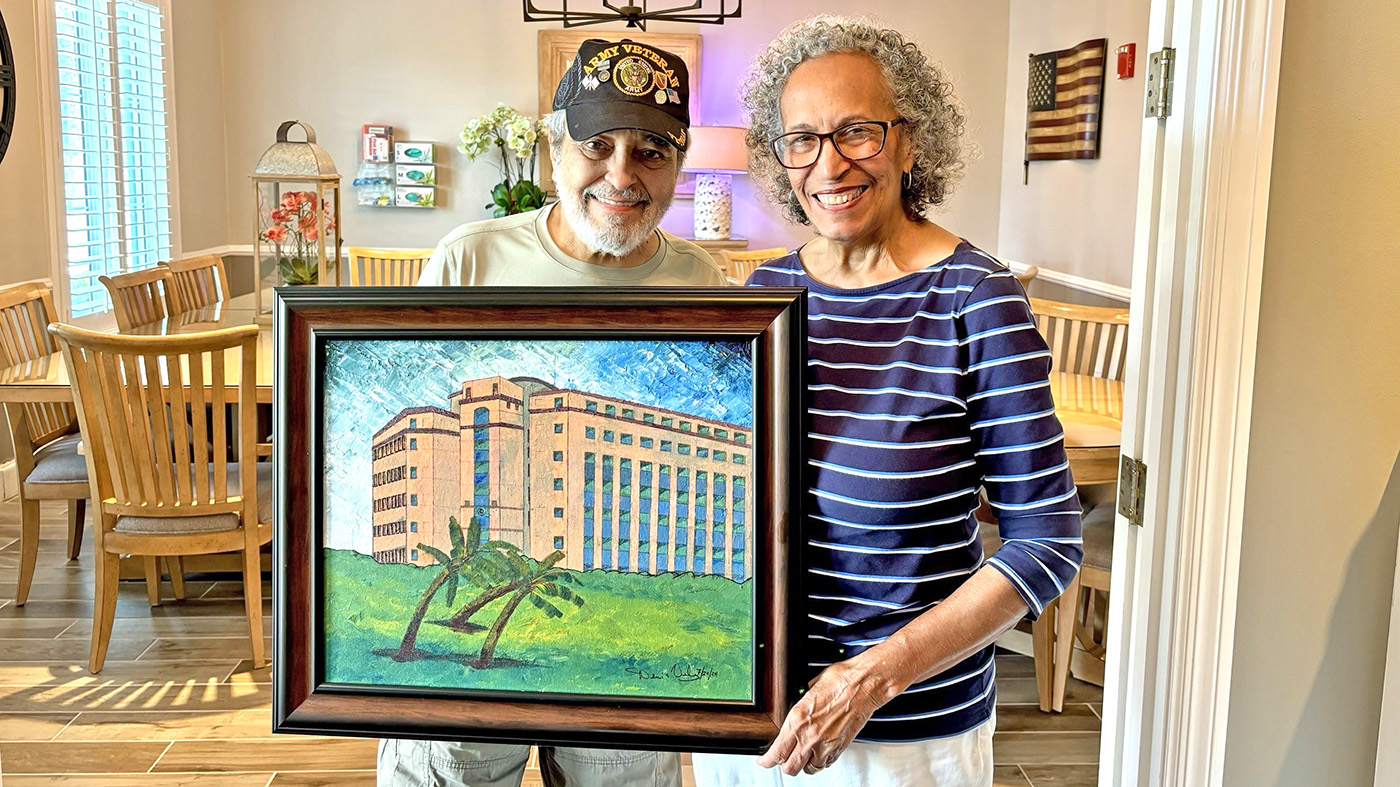
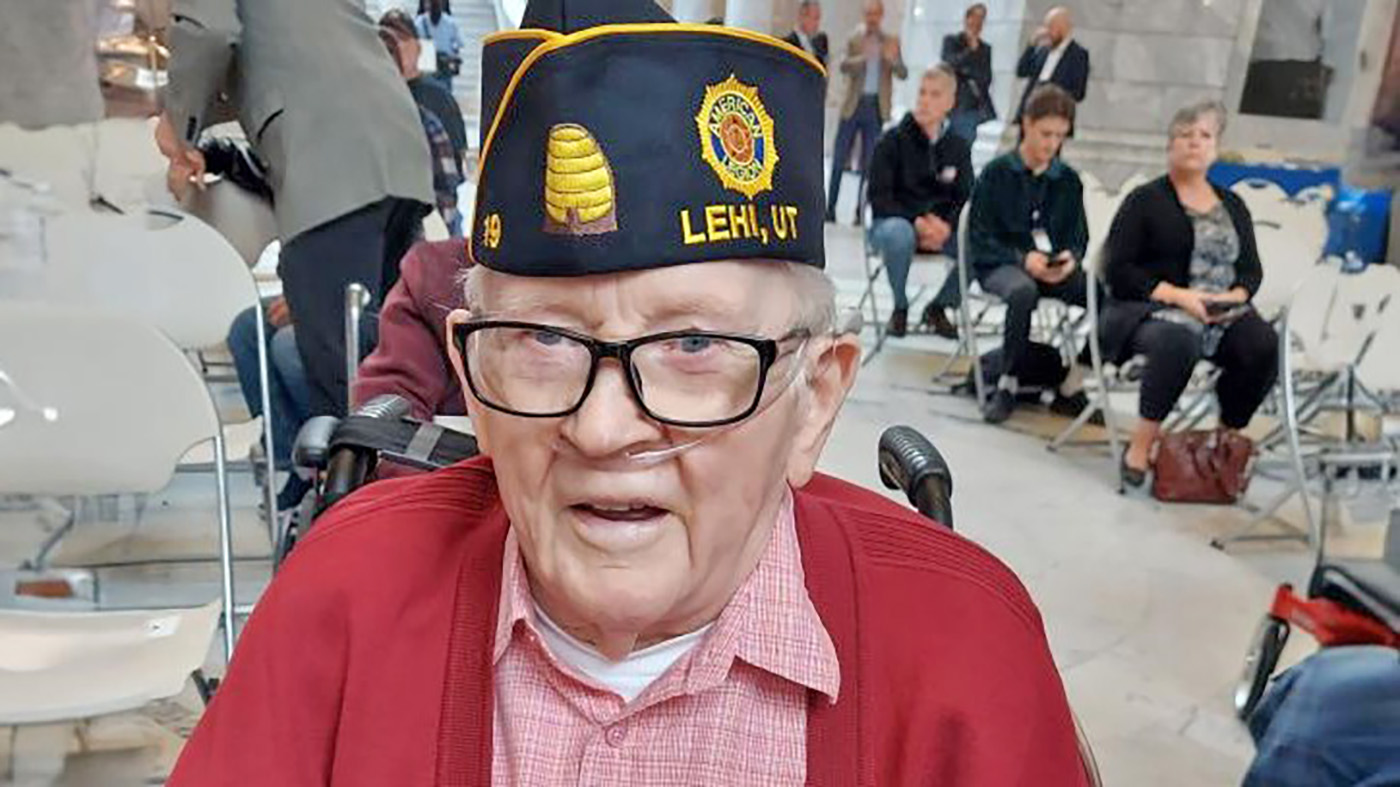
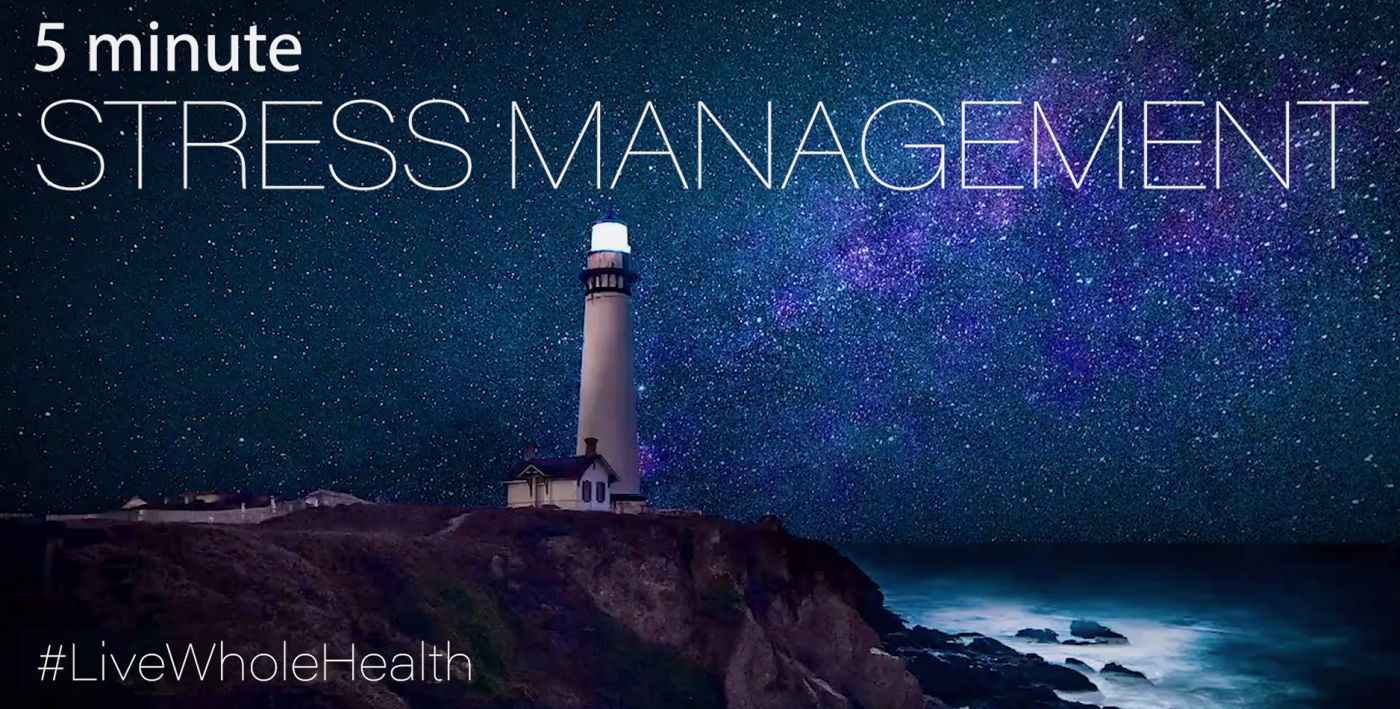


Telehealth is very interesting treatment. Some people are using..